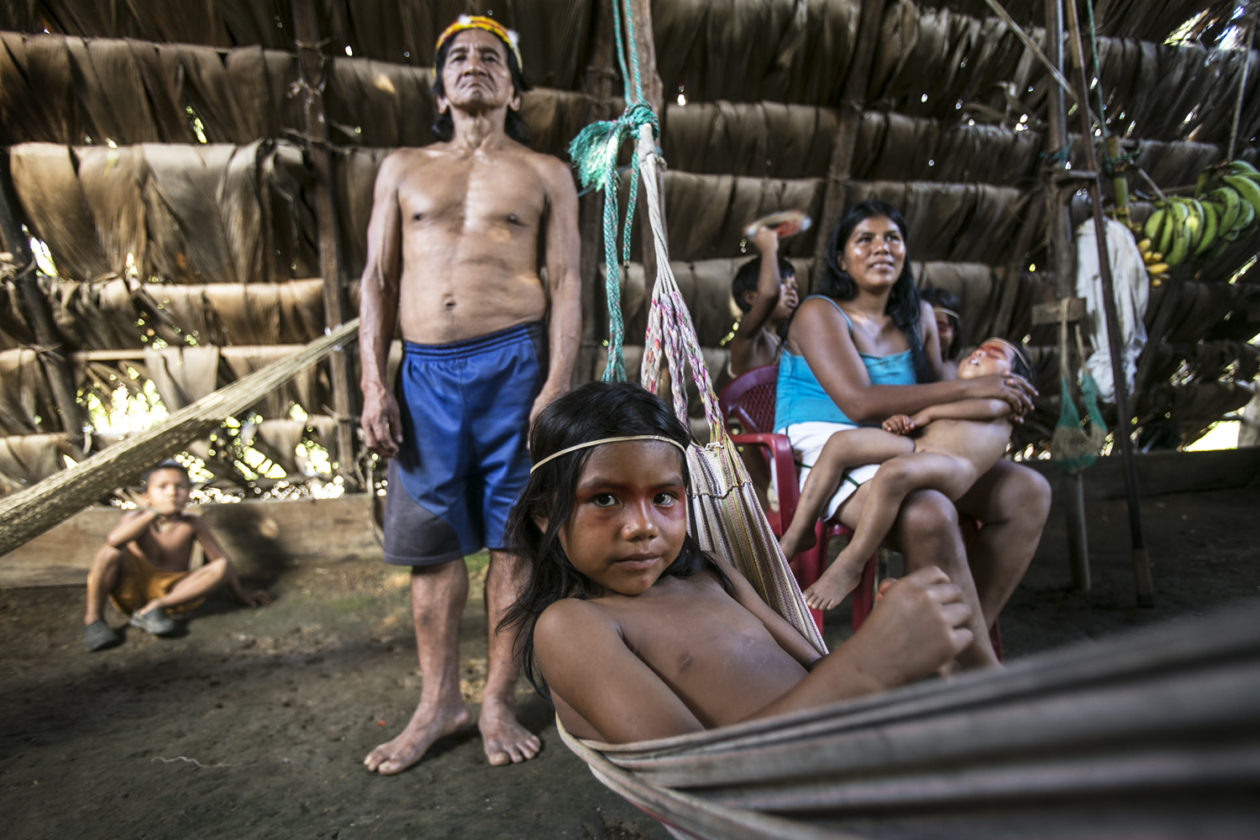
Words and photos by Caroline Bennett
Meet the Waorani of the Ecuadorian Amazon. They are fighting for traditional life and championing alternatives to threats to their ancestral territory—one of the wildest, most biodiverse places on the planet.
The Waorani have lived on the fringes of Ecuador’s Yasuní National Park—one of the most biodiverse places on the planet—for thousands of years. Their ancestral territory overlaps significantly with the park. Like much of the neighboring rainforest, until recent decades this land was a pristine expanse of life-giving trees and clean-flowing rivers.
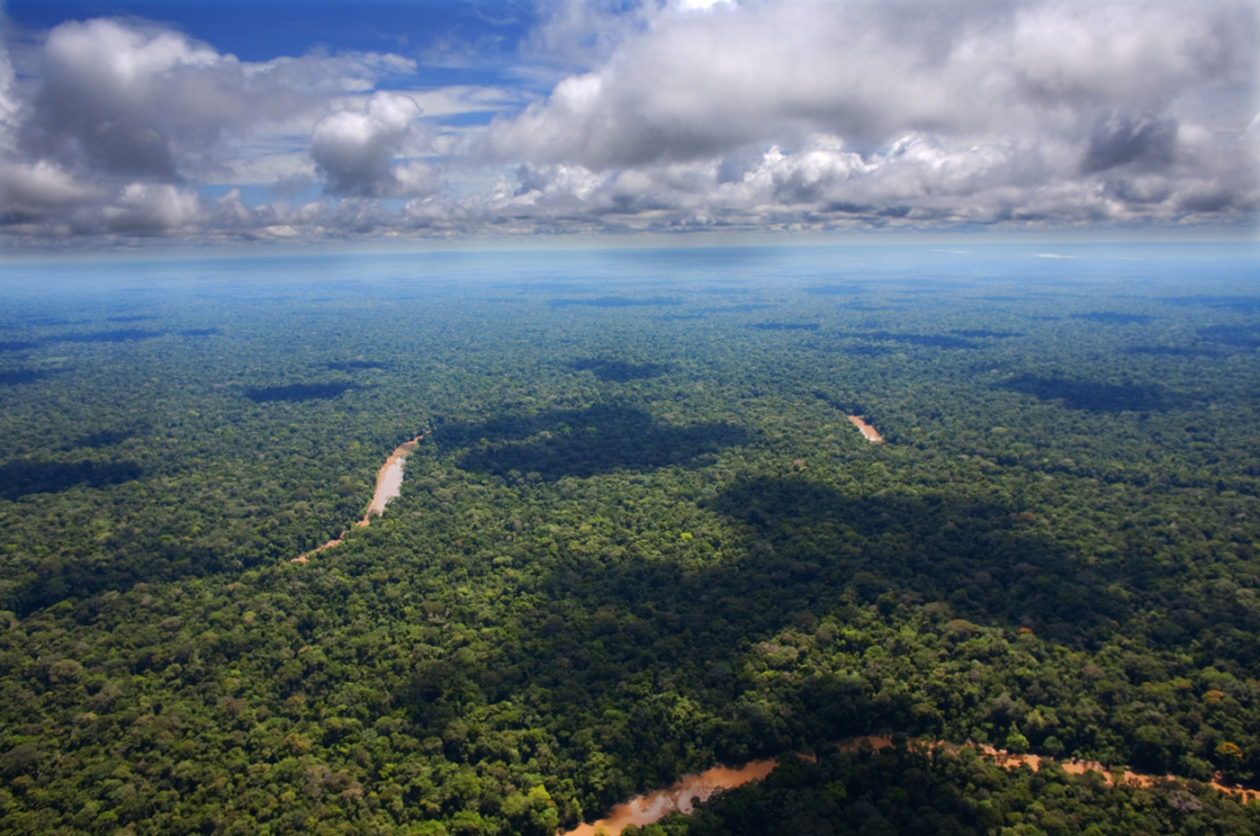
Today Waorani communities hedge a number of threats, including being physically wedged between two bustling oil fields, Cononaco and Armadillo, where the Ecuadorian government is pushing to expand oil production into the heart of Yasuní and Waorani ancestral territory.
The Waorani legacy of resistance
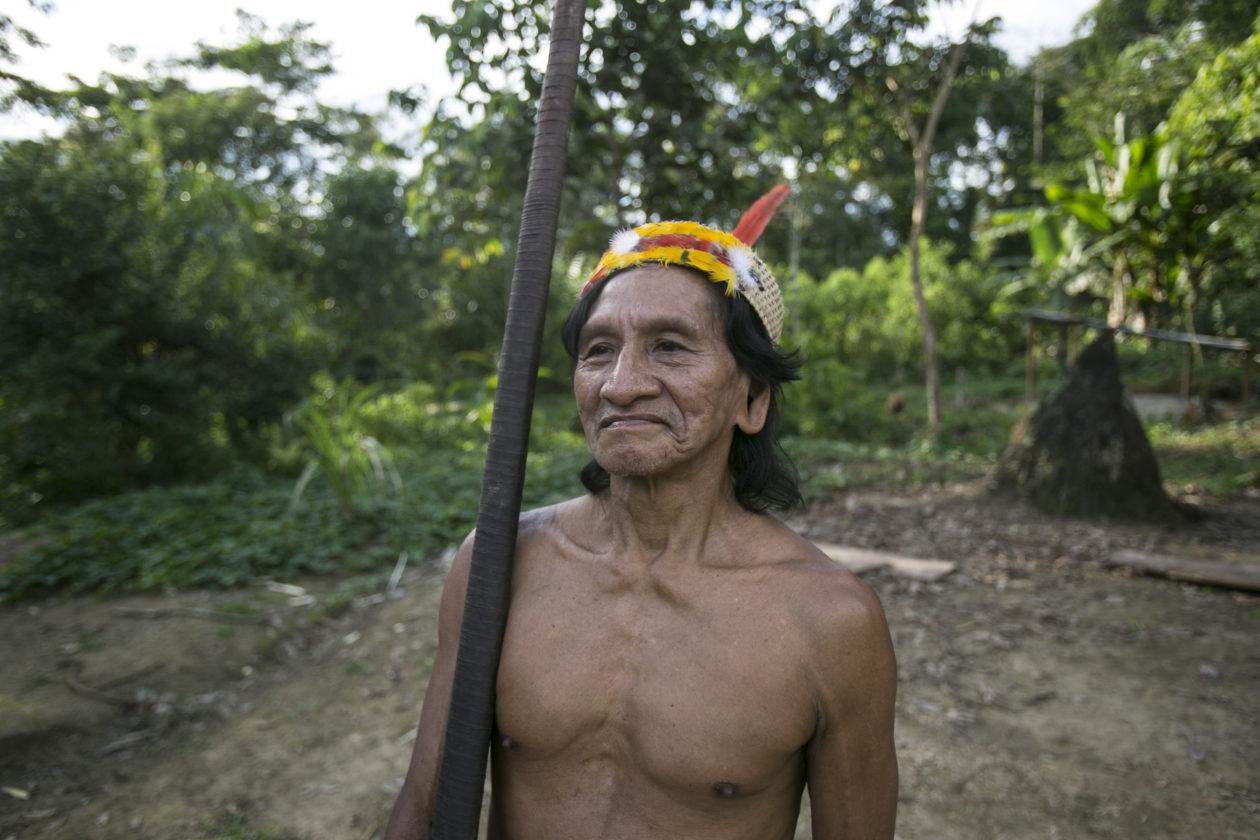
Far into the dense jungle between the Curaray and Napo rivers, the Waorani navigate the modern world while still leading mostly traditional lives. Men go on expeditions deep in the forest to hunt peccary with blowguns, while women delicately weave chambira fiber from a local palm into intricate baskets and handicrafts as their ancestors have for millennia. Generations of extended families live together in open-air thatched roof houses, which dot the banks of the rivers they depend on for drinking, fishing and bathing.
The Waorani have a long held reputation for being fierce warriors in the Amazon and a legacy of resistance. A confident, brave and stoic people, they are aggressive fighters but do not outwardly show anger. They maintain an egalitarian society in which genders are treated equally and food and goods are shared freely. While they once numbered in the tens of thousands, today the Waorani comprise some 2,000 people, including two uncontacted subgroups, most of who speak in their native tongue, a linguistic isolate that is not known to be related to any other language.
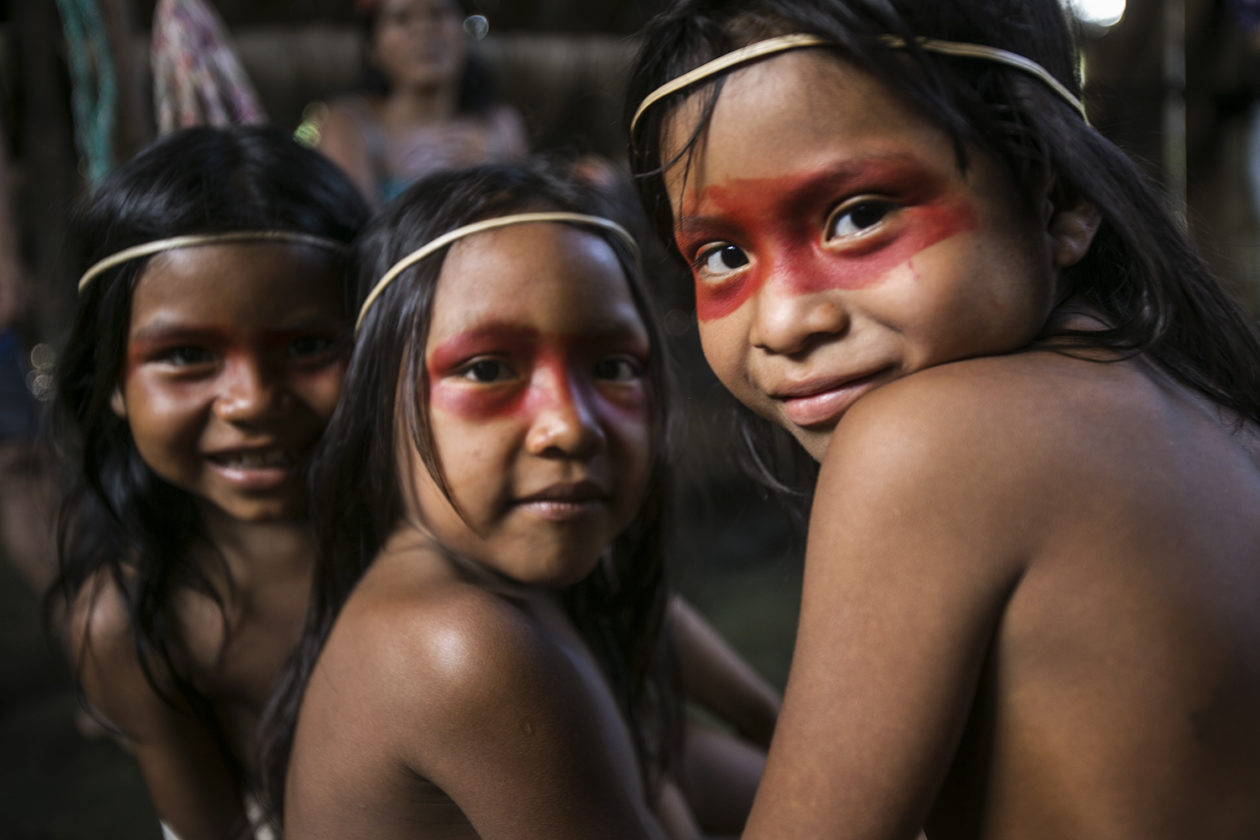
Unlike neighboring indigenous groups, the Waorani have never been conquered or colonized and remained out of contact with the outside world until the 1950’s, when oil company-backed missionaries entered their territory. Since then, the Waorani story has been one of resilience in the face of mounting threats, including encroachments by the Ecuadorian government, mestizo colonists, destructive industries and unregulated markets, and attempts to strip them of their traditional way of life. The greatest and most urgent danger today is a relentless thirst for the oil that lies under and nearby Yasuní.
Taking a Stand
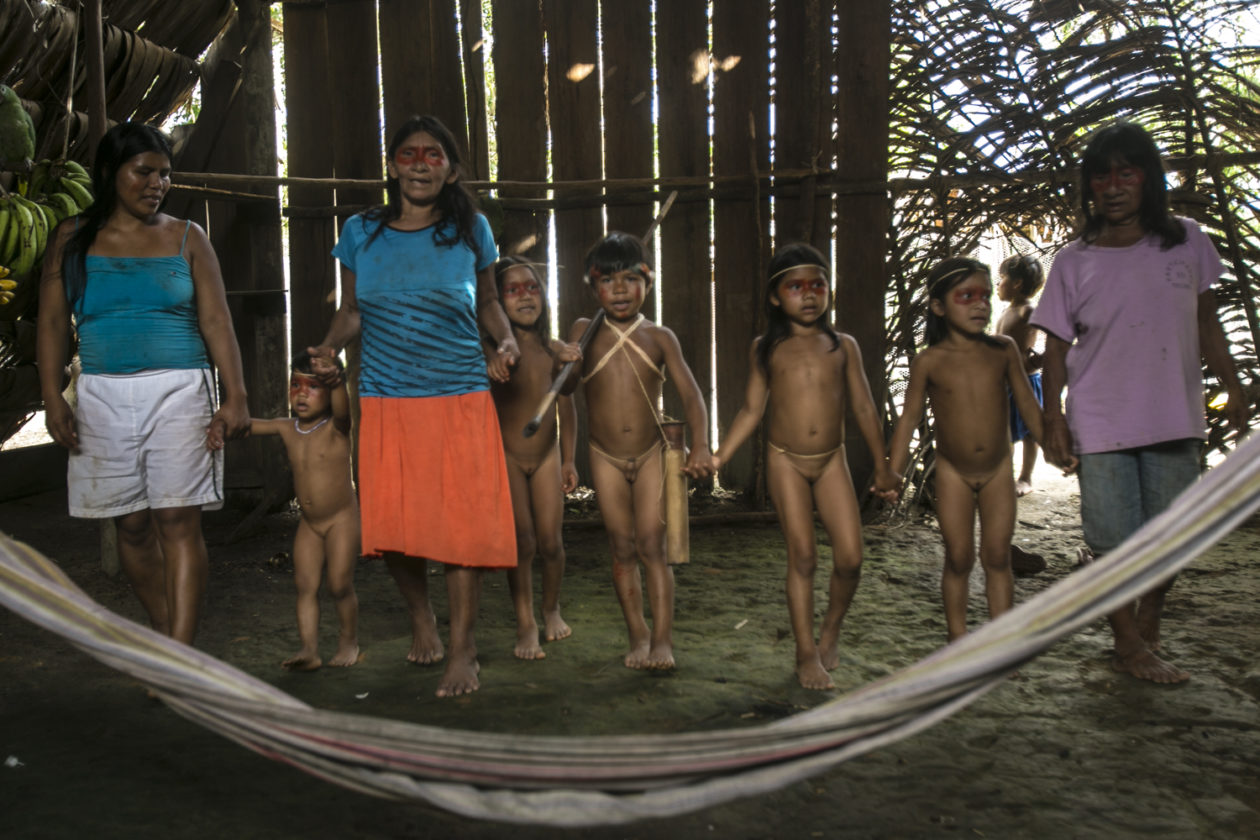
The Waorani response to these pressures has been to seek to integrate the positive influences from the outside world into theirs, while rejecting those that threaten their autonomy and traditional way of life.
“My grandmother taught me to fight for our environment, against the oil companies who are destroying our forest,” Alicia Cahuilla addressed a riveted crowd at a UNFCCC COP20 event in Lima. “We can’t feed our children oil. We have to defend life.”
Alicia is a Global Greengrants grantee and the vice president of the National Waorani Federation (NAWE). In 2005, Alicia and local communities founded Asociación de Mujeres Waorani del Ecuador, an association now comprising some 300 women who have developed a winning land management plan that emphasizes zero deforestation, organic cocoa cultivation as a primary economic driver, the management of subsistence hunting activities to protect wildlife and an alternative development that does not include forest destructing industries. These women have led the charge in successfully steering the local economy away from clear-cutting, unregulated bush meat markets and new oil exploitation.
AMWAE was recently honored internationally by being awarded the prestigious Equator Prize, which brings together the United Nations, governments, civil society, businesses and grassroots organizations to recognize and advance outstanding local sustainable development innovations for people, nature and resilient communities.
“My parents taught us everything about the forest, that we are richer when living in harmony with nature. We began to organize ourselves from there, especially us women,” said Manuela Omari Ima, who serves as Community Coordinator for AMWAE in a video featured at the awards gala last September in New York, an event she also attended on behalf of the association and Waorani communities.
“The profits (from AMWAE initiatives) are spent on health, education and community services. And we are taking care of our environment,” she went on, calling on stories of the women taking action in local communities.
Global Greengrants is proud to support the Waorani and grassroots organizations like AMWAE with grant funding and assistance in fundraising, networking and partnerships. In 2013, Global Greengrants gave a small grant through local partnership to AMWAE to provide emergency assistance in the struggle to protect the rights of the Waorani Nation by facilitating a community assembly to discuss government plans to auction off portions of their territory for oil exploration. AMWAE continues to request support in keeping new oil development out of Waorani territory and in amplifying their demand that the national government respect their human and collective rights.
“This project has planted a seed that grows and strengthens ties between indigenous peoples. This is how we empower our people.”
Women on the Front lines of Climate Change
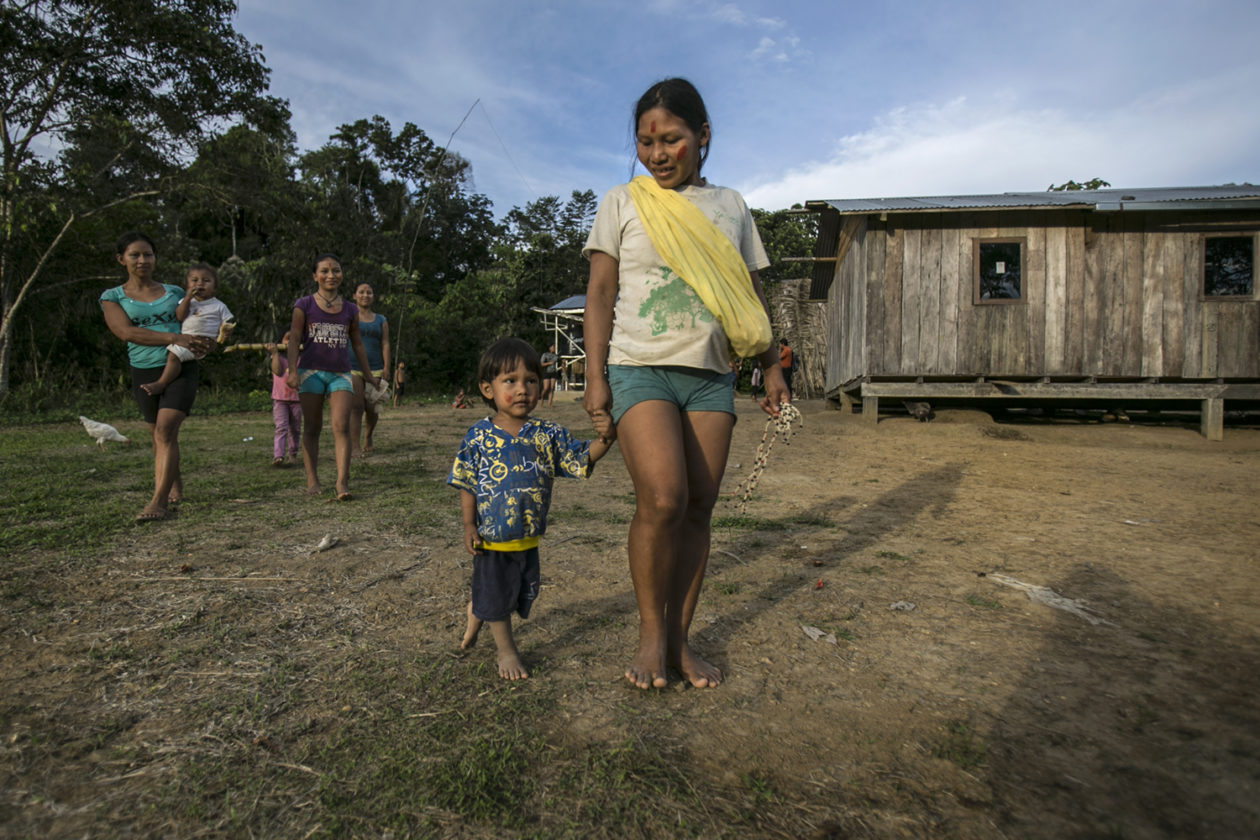
As in other developing countries, women in the Amazon bear a disproportional burden as climate change impacts their traditional lands and environment. It is in the daily lives of these women—who are highly dependent on local natural resources for their livelihood—that the battle to save the family, ways of life and the future of their children is played out. But the same societal roles that make women more vulnerable to environmental challenges also make them key actors for driving solutions.
The women of the Amazon have felt a great responsibility to fight the destruction of Pachamama—“life giving mother earth”—and are calling on the world to keep oil under ground in their ancestral lands. As female givers of life, their knowledge and experience can and should play a leading role in natural resource management and the global response to climate change. The Waorani women of the Ecuadorian Amazon are a leading example of this. As climate change continues to add pressure to their traditional way of life, these women are creating a legacy that will restore and protect local forests for generations to come.
Download “Climate Justice and Women’s Rights” for more about how women in communities around the world are leading actions to protect their environments, health, and ways of life.
